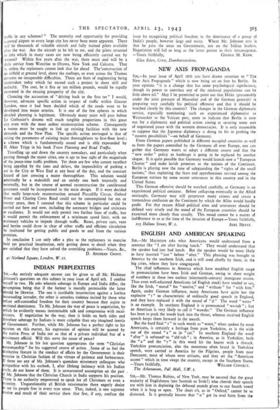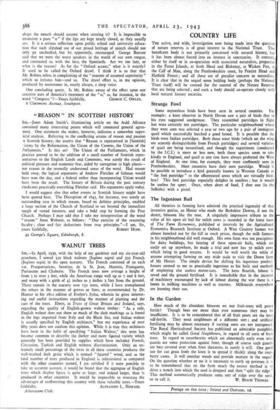SIR,—Mr. Thomas Robins, of New York, may be assured that
the great majority of Englishmen (not Scottish or Irish!) who cherish their speech are with him in deploring the debased sounds given to our fourth vowel when it is long or open. The short o's, as in "Oxford," cannot be so distorted. Is it generally known that " o " got its oval form from the
shape the mouth should assume when uttering it? It is impossible to enunciate a pure "o" if the lips are kept nearly closed, as they usually arc. It is a serious reflection upon public school and university educa- tion that such slipshod use of our proud heritage of speech should not only -go unchecked, but be, apparently, encouraged. George Borrow said that we were the worst speakers in the world of our own tongue, and contrasted us with the best, the Spaniards. Are we too lazy, or what is the reason? As for the " Oxford accent," what is it exactly? It used to be called the Oxford drawl. I think it is to that that Mr. Robins refers in complaining of the " manner of assumed superiority " which so irritates him—and us. The drawl effect is, in my opinion, produced by monotones in, nearly always, a deep voice.
One concluding query. Is Mr. Robins aware of the effect upon our sensitive cars of America's treatment of the " 0," as, for instance, in the



























 Previous page
Previous page